With thanks to our funding sources

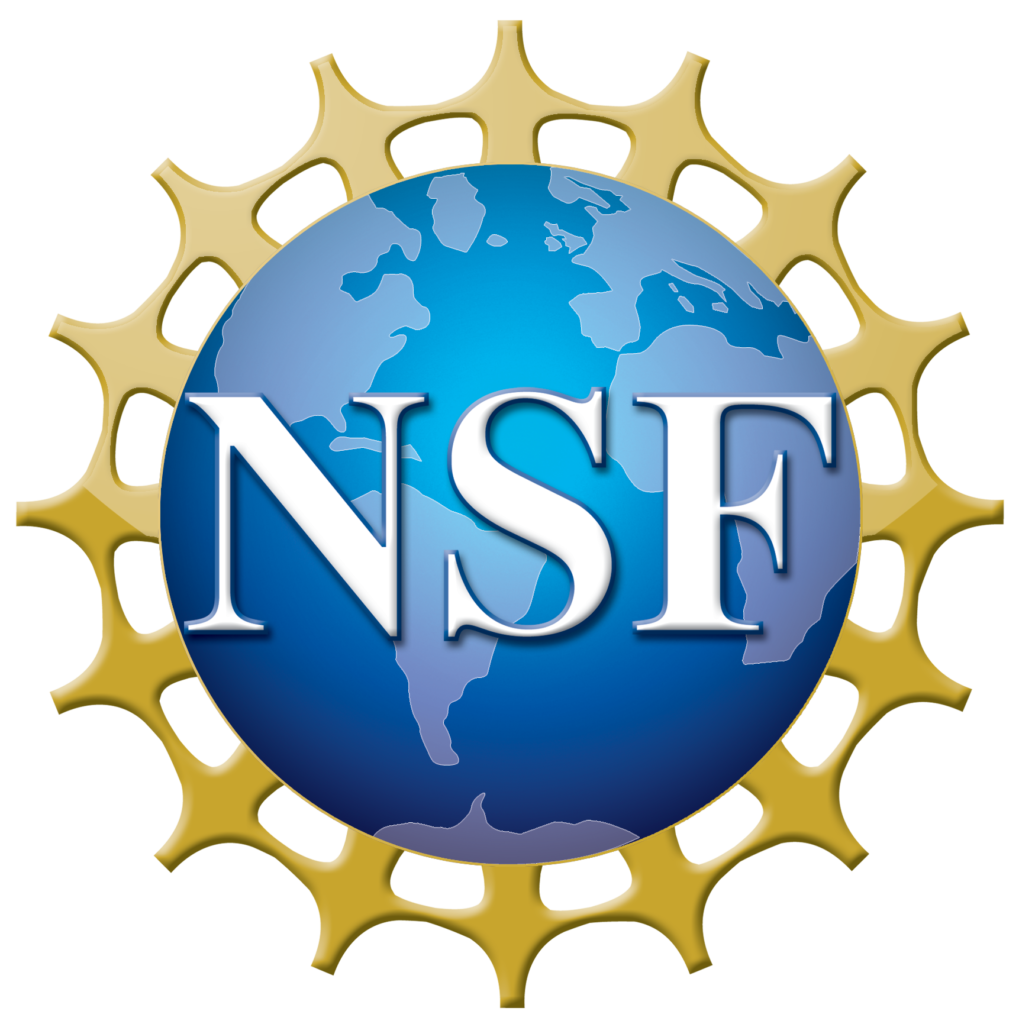
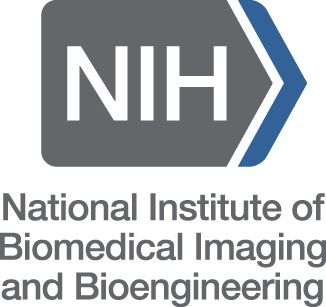
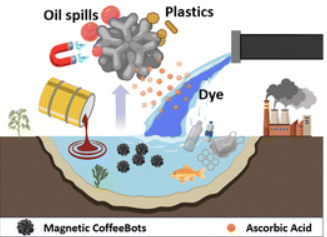
Spent Coffee Ground-based Micromotors for Water Treatment
More information: https://www.youtube.com/watch?v=cDSJA1JBTNk
Water pollutants such as oil spills, industrial dyes, and microplastics threaten public health and aquatic ecosystems. There are considerable challenges in removing water contaminants using traditional methods. Several studies have been conducted in recent years to develop effective water purification materials. Despite this, the mass production of most materials is extremely challenging because they
involve multiple intricate steps and sophisticated equipment. Herein, we report the facile synthesis of spent coffee ground (SCG)-derived magnetic microrobots, which we dub “CoffeeBots”, to remove oil,
organic dyes, and microplastic pollution from contaminated seawater. In order to meet eco-friendly, high-yield and low-cost requirements, iron oxide nanoparticles (IONPs) were deposited on biodegradable SCGs using green chemistry. The IONPs on CoffeeBots facilitate magnetic navigation and recycling, microswarm assembly, and ease of retrieval after water remediation tasks. CoffeeBots’ intrinsic surface hydrophobicity enables efficient on-the-fly capture and removal of oil droplets and microplastics from contaminated water with remote magnetic guidance. CoffeeBots were also functionalized with ascorbic acid (AA@CoffeeBots) to remove methylene blue (MB) dye contaminants from polluted seawater. SCGs and AA act as bioadsorbent and reducing agent, respectively, for MB dye removal whereas magnetic propulsion enhances mixing and accelerates MB decolorization. These CoffeeBots can be recycled numerous times for removing oil spills, organic dyes, and microplastics from the seawater. CoffeeBots hold considerable potential as sustainable, recyclable, and low-cost remediation agents for water treatment in the near future.
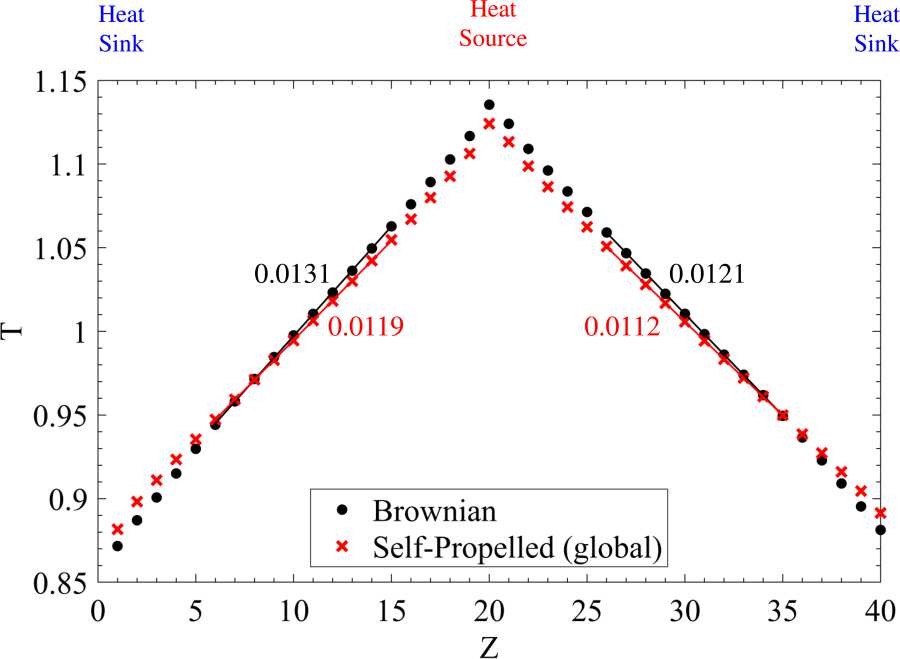
Heat Transfer Enhancement using Self-Propelled Nanoparticles (funding: NSF EAGER)
Collaborator: Prof. Pawel Keblinski, Rensselaer Polytechnic Institute
Cooling is a critical component of many technologies that make the world run, such as computer chips, data centers, light-emitting diodes, heat exchangers, and many more. However, the performance of these technologies is fundamentally limited by the thermal diffusivity of the coolants. We are developing the first “active heat transfer fluids” (AHTF), consisting of self-propelled nanoparticles that induce “micro-stirring,” which causes the temperature gradient to become shallower for the same heat flux (left). This is equivalent to an enhancement in the effective thermal conductivity of the fluid by over 10% compared to the liquid alone. We are now actively exploring the enhancements in convective heat transfer coefficient induced by self-propelled particles, as well as advantageous reductions in suspension viscosity resulting from the particles’ motion. These enhancements could enable coolants with dramatic heat flux enhancements while simultaneously requiring little or zero pumping power.
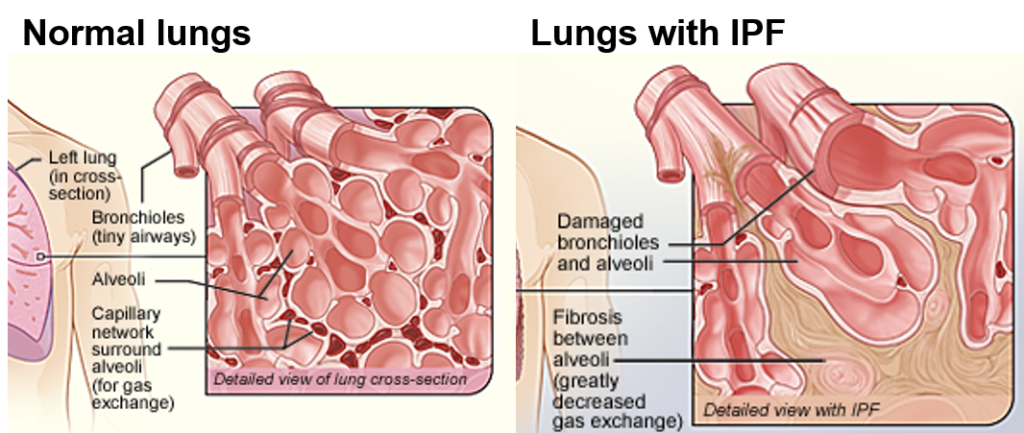
Idiopathic Pulmonary Fibrosis (funding: Virginia Commonwealth Health Research Board)
Collaborator: Prof. Geraldine Grant, George Mason University
(Image: Wikimedia Commons)
Idiopathic pulmonary fibrosis (IPF) is a deadly lung disease with unknown cause and few treatment options. IPF is characterized by uncontrolled formation of scar tissue in the lungs, which progresses relentlessly until breathing is impossible. IPF claims as many lives per year in the U.S. (~40,000) as breast cancer. We are creating a patient-derived hydrogel platform to study the effects of tissue stiffness and viscoelasticity on IPF progression. We are also leveraging this platform to test the efficacy of self-propelled nanoparticles to penetrate the thick fibrotic tissue near a disease site and deliver medications precisely where they will have the greatest therapeutic effect. We hypothesize that this advance will enable lower doses of antifibrotic medication to achieve a therapeutic outcome, while at the same time decreasing side effects.